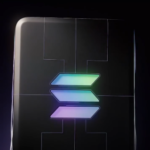As famous by Ethereum’s Vitalik Buterin, Visa founder Dee Hock had some concepts which are much like the principle rules of crypto and decentralized autonomous organizations (DAOs).
“Actually some good insights to study from there,” Buterin commented.
Hock’s authentic imaginative and prescient
The unique idea of Visa was speculated to be primarily based on equitable possession, energy distribution, variety, and distributed governance.
It was initially speculated to be a non-stock membership group with no inventory worth. Nevertheless, following its preliminary public providing (IPO) in 2007, Visa grew to become a for-profit public firm and, subsequently, witnessed vital governance modifications.
Such an method really mirrors the philosophies behind DAOs, which make it potential to manipulate with none central authority.
Visa has deviated from its starting, turning into a significant centralized establishment that has immense management over cost processing. As famous by Buterin, some cryptocurrency proponents now are likely to understand Visa as “extractive” and “oppressive.”
For example, Visa continuously will get criticised for its excessive transaction charges or for being able to dam transactions. Nevertheless, greater charges have been crucial with a purpose to please shareholders.
Visa was additionally capable of improve charges on account of having fun with full market dominance alongside rival Mastercard.
Visa’s crypto play
Cryptocurrencies have lengthy been touted as a potential substitute for Visa. Nevertheless, the funds large has moved to embrace them as a substitute of preventing the burgeoning sector.
In 2021, Visa famously began piloting Circle’s USDC stablecoin for settlements powered by Ethereum, regularly increasing its pilots to Solana.
Visa has additionally launched stablecoin-linked automobiles whereas additionally integrating Web3 infrastructure that allows seamless crypto-to-fiat withdrawals.








